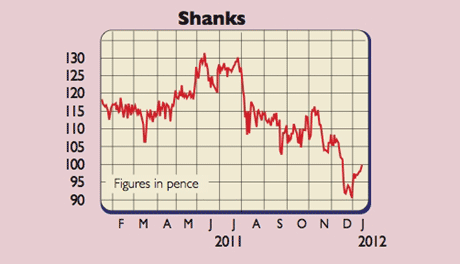Get the latest financial news, insights and expert analysis from our award-winning MoneyWeek team, to help you understand what really matters when it comes to your finances.
You are now subscribed
Your newsletter sign-up was successful
Want to add more newsletters?

Twice daily
MoneyWeek
Get the latest financial news, insights and expert analysis from our award-winning MoneyWeek team, to help you understand what really matters when it comes to your finances.

Four times a week
Look After My Bills
Sign up to our free money-saving newsletter, filled with the latest news and expert advice to help you find the best tips and deals for managing your bills. Start saving today!
When it comes to recycling, the Dutch are world leaders. As a flattish country with much land below sea level, there's little space to build landfills, so the Dutch separate waste at source, reclaiming and recycling materials and minimising waste.
Britain has a lot of room to catch up. We are aiming to double our recycling activities from today's 40% levels to nearer the 80% achieved on the continent. One stick being wielded to drive this change is landfill tax.
Each year this rises by £8 a tonne and is set to hit £80 a tonne by April 2015. Some of this money, along with private sector cash, is being put towards the construction of £10bn worth of new private finance initiative (PFI) infrastructure.
MoneyWeek
Subscribe to MoneyWeek today and get your first six magazine issues absolutely FREE

Sign up to Money Morning
Don't miss the latest investment and personal finances news, market analysis, plus money-saving tips with our free twice-daily newsletter
Don't miss the latest investment and personal finances news, market analysis, plus money-saving tips with our free twice-daily newsletter
Shanks is one of Europe's most advanced waste recyclers, making 67% of profits from the Netherlands, 18% from Belgium and the rest from Britain (9%) and Canada (6%). It plans to take its expertise from Benelux and use it to compete in the faster-growing UK market, where it hopes nearly to treble earnings over the next three to five years.
The board is investing in recycling, waste-to-energy, composting and anaerobic digestion plants. These will allow Shanks to turn household rubbish into solid fuels, and food and garden waste into biogas, soil conditioners and liquid fertiliser.
In the six months ending in September, revenues rose by 14% to £988m. Adjusted EBITA rose to £28.1m and the dividend grew by 10%. The previously loss-making PFI unit achieved margins of 9%. The unit is also down to the last two bidders for seven further deals, which could add another 1.1 million tonnes of waste a year to its volumes. Recycling prices are holding up and its business clean-up activities on contaminated land in Holland is relatively buoyant.
Shanks (LSE: SKS), rated a BUY by RBS

The City expects turnover and underlying earnings per share (EPS) of £772m and 7.6p for the year ending March 2012, rising to £819m and 8.5p. I rate Shanks on an eight times EBITDA (EBITA excluding depreciation) multiple. Adjusting for £166m net debt and an £11m pension deficit, that gives a value of around 160p a share.
British investors should watch out for foreign-exchange issues, particularly if Benelux is sucked into the European debt vortex. Corporations produce less waste when times are hard, so a recession could be bad news. But there's no sign of volumes dropping yet. With the tailwind from tightening environmental laws, Shanks should continue to prosper. Royal Bank of Scotland has a price target of 152p. The next trading statement is out in February.
Rating: BUY at 98p (market cap £389m)
Update: Robert Wiseman (LSE: RWD) -Mller Dairy has agreed to buy Robert Wiseman for 390p a share in cash, plus an interim dividend of 5.75p, giving a total of 395.75p. That's a 23% gain on our initial buy tip of 322p (from May 2011). Mller already has irrevocable undertakings relating to 57.5% of the capital. There is always an outside chance a third party may submit a competing bid, although it seems unlikely. So HOLD for now.
Paul Hill also writes a weekly share-tipping newsletter, Precision Guided Investments. See www.moneyweek.com/PGI, or phone 020-7633 3634 for more.
Get the latest financial news, insights and expert analysis from our award-winning MoneyWeek team, to help you understand what really matters when it comes to your finances.
Paul gained a degree in electrical engineering and went on to qualify as a chartered management accountant. He has extensive corporate finance and investment experience and is a member of the Securities Institute.
Over the past 16 years Paul has held top-level financial management and M&A roles for blue-chip companies such as O2, GKN and Unilever. He is now director of his own capital investment and consultancy firm, PMH Capital Limited.
Paul is an expert at analysing companies in new, fast-growing markets, and is an extremely shrewd stock-picker.
-
 Early signs of the AI apocalypse?
Early signs of the AI apocalypse?Uncertainty is rife as investors question what the impact of AI will be.
-
 Reach for the stars to boost Britain's space industry
Reach for the stars to boost Britain's space industryopinion We can’t afford to neglect Britain's space industry. Unfortunately, the government is taking completely the wrong approach, says Matthew Lynn